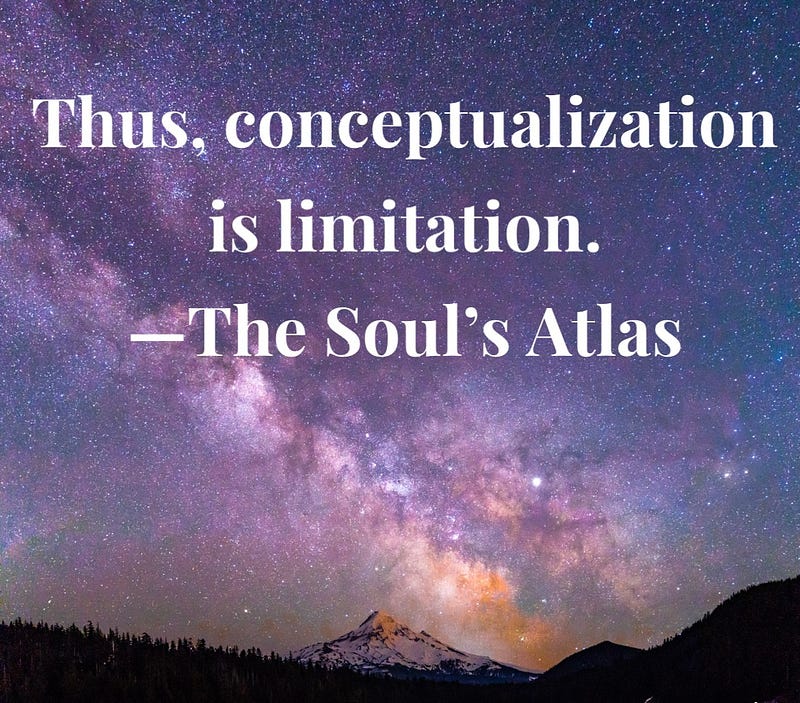How Embracing Innocence Can Lead to Enlightenment
Written on
The Essence of Enlightenment
Enlightenment is not a distant or mystical achievement that perpetually eludes you. It does not revolve around acquiring more knowledge or attaining new heights. In fact, it is quite the contrary.
Enlightenment represents a process of unlearning everything you believed to be true. It involves the profound realization that, in essence, you know nothing at all. This process of shedding preconceived notions is often described as having a "beginner's mind" or "Zen" mindset—experiencing pure awareness free from thought. We will refer to this state as innocence.
Innocence embodies a raw and unfiltered perception, devoid of any conceptual baggage. The sages of old did not forcibly erase their concepts; instead, they understood that labels could never encapsulate the essence of things. Life possesses a miraculous and enigmatic quality that we once recognized as children, often referred to as "childlike wonder." As we mature, we become conditioned to impose labels and definitions onto our experiences, leading us to mistakenly believe we fully understand them.
It is not inherently wrong to name things; rather, the issue arises when we assume that our labels accurately represent reality. For instance, labeling a flower as "a flower" is one thing, but believing that the label encompasses its true nature is another.
When you perceive a flower as a mystery, as if you are witnessing it for the first time, it transforms into something vibrant and wondrous, filled with beauty and awe. Our belief in separation causes us to confine the infinite into finite concepts, restricting our appreciation of life.
When you approach life with a sense of certainty about your understanding, you risk losing sight of its beauty. Miraculous occurrences become mere trivial labels. The ego, fixated on survival, perceives a world fraught with fear and division. This is why innocence stands as the highest form of spiritual wisdom. Recognizing that life transcends simplistic conceptualizations is essential.
“Innocence is wisdom, for it is unaware of evil, and evil does not exist.” — A Course in Miracles
True peace is unattainable while you are bound by your judgments. Once you grasp that the mind cannot accurately judge reality, you will cease to try. You need not abandon naming things altogether, but you should intuitively acknowledge that your concept is not the essence of the thing itself. Reality is too intricate and mysterious to assume you fully comprehend anything. Thus, conceptualization becomes a limitation. Judging or labeling anything as good or bad, positive or negative, or superior or inferior is impossible for a mind grounded in innocence.

Understanding God's Reality
God’s reality is inherently harmonious. Everything is interconnected, serving a purpose that transcends human comprehension. Upon reaching this realization, it becomes clear that this reality is working for us, never against us.
Our suffering originates from the arrogance of believing we can grasp the unknowable. By labeling things negatively, we inadvertently create the very experiences we detest. Innocence can be seen as a state of awareness prior to the imposition of concepts. When we acknowledge our mental innocence, we stop relating to life through a conceptual lens. This allows us to perceive God’s reality, which consistently radiates divine love and innocence.
“Salvation can be seen as nothing more than the escape from concepts.” — A Course in Miracles
Both enlightenment and innocence exist only in this present moment; they cannot be learned or attained through effort. Release every label, judgment, and concept you hold onto, and allow the divine and mysterious essence of reality to reveal itself.
The only moment that exists is now, and you are intrinsically connected to it.
Sources: Aaron Abke — YouTube Home • Foundation for Inner Peace: Publisher of A Course in Miracles (ACIM)
Thank you for taking the time to engage with my thoughts. If you found this piece inspiring, please consider clapping (up to 50 times), subscribing, and following for more frequent updates. May you be blessed on your journey!